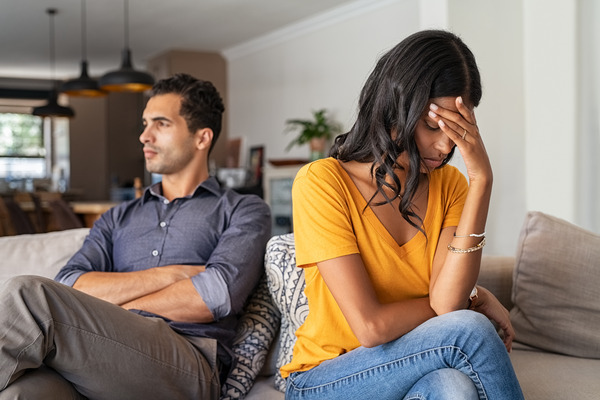“Honey, are you listening to me?” A large number of couples who come to the consultation come with the same complaint.
A great number of couples who come to consultation, come with the same complaint, psychologists who work in this area frequently hear:
“Our problem is communication, we communicate very poorly, we don’t understand each other”
Why does communication become a problem?
Surely they are not wrong, but I consider that the problem starts before It’s not that they communicate poorly, it’s that many times they don’t even communicate, sometimes they hear each other, but almost never listen to each other.
Listening to others involves an effort, when we listen we pay attention to the message they want to convey to us, and this message is made up of both what they say, that is, their words, verbal language, and their gestures, what they do, language is not verbal. When our partner feels listening, this implies a positive movement in her and reciprocally in us, it generates understanding, empathy and agreement.
When there is no active listening In a couple this implies that there is no effective communication, and therefore that conflicts, misunderstandings and problems arise in the couple.
To practice active listening with our partner we have to try understand how others think and feel Active listening means using empathy, making an effort and focusing our attention. It is not an easy task, it requires practice and work. If we manage to actively listen to our partner, it is easier to maintain a healthy relationship based on a solid foundation.
How to improve our active listening?
Some tips for improve active listening in couple
1. Look in the eyes
Look your partner in the eyes when you are talking to him/her. This makes the other feel that they are listening
2. Do not interrupt
You should not interrupt your partner, allow him finish talking to later give your point of view.

3. Let others express
Don’t try to read his mind , that is, guess what he is going to say. When we have been with a person for a long time we tend to think that we know what they are going to say, do or think, however, people do not always behave in the same way. Allow him to express himself and say what he wants to say.
4. Focus on the conversation
When you talk to your partner focus on the conversation , don’t try to do something else at the same time. If you want to listen actively, you cannot talk to your partner and watch TV, answer cell phone messages, read, etc.
5. Watch your gestures
Be careful with gestures , sometimes while someone else is speaking we express our disagreement with gestures or grimaces. Try to be neutral during the time the other person spoke and tell them what you think when you finish trying to reach an agreement or simply validate their point of view, even if you don’t think the same.
6. Question
When have doubts about what the other is saying, ask. Use phrases like if I understood you correctly, what you want to say is…. This helps us to be sure that we have understood the message and that we are not assuming anything or interpreting anything.
Remember that it is difficult to get master active listening but it can be achieved with practice, patience, tolerance and large doses of love.









